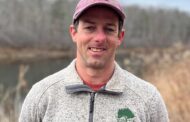
Amanda Comeau: Speaking for Survivors of Sex Trafficking
Every month PelotonLabs co-founder Liz Trice interviews a local community member. This month, Liz caught up with Amanda Comeau, the director of Survivors Speak USA, who serves on the Permanent Commission on the Status of Racial, Indigenous, and Maine Tribal Populations and on committees related to homelessness, poverty, and ending hunger.
What does Survivors Speak USA do?

There’s two parts. We work directly with survivors of sex trafficking to connect them to mental health, legal, and recovery resources; and we work on policy changes. I also conduct trainings for social workers and parents to help them see and prevent sex trafficking. I have a training coming up with over 200 parents in Lewiston to help them learn how to keep their kids safe.
A lot of what I do is outreach. I do as much as I can do on a low budget and without a car. I’ve been the director for a year and a half and have met with 15 to 80 people per week. This week alone I’ve already met with over 150 people, probably a quarter have personally been sex trafficked. I answer my phone at 1 and 2 a.m., I listen to them, I mentor them.
What’s the definition of sex trafficking, and how common is it in Maine?
From Wikipedia: ‘Sex trafficking is human trafficking for the purpose of sexual exploitation. It has been called a form of modern slavery because of the way victims are forced into sexual acts non-consensually, in a form of sexual slavery.’
In Maine that can look like children or adults being kidnapped or held against their will or through use of drugs and emotional manipulation to keep them in situations where they are used for sex, either for personal or commercially.
Even if the numbers aren’t massive, the amount of harm is.
From the MaineSTEN’s website:
- There are between 300 and 400 sex trafficking cases in Maine annually.
- Nearly 40% of law enforcement officers have seen a case in the last year.
- Many homeless and street-involved women and youth surveyed are offered drugs or money in exchange for sex with a stranger.
Who is most vulnerable to sex trafficking?
The typical victim in Maine is white, female, between 14 and 30-years-old, with a history of sexual abuse or domestic violence and or absence of supportive caregiver. But there’s a growing incidence and risk for children that are BIPOC and New Mainers. We’re working in Lewiston trying to make it known that children at 13 should not be married. Sometimes kids who don’t have a lot of support at home are “groomed” … Befriended by people who later trap, assault, kidnap them, or get them hooked on drugs.
There’s also an increase in the number of men and boys, as well as trans men and women. Men are more likely to act tough and deny it’s happened to them. We’re trying to reduce stigma so people can get help. We don’t want no more “Forgotten Women” as well as black, brown, and indigenous women.
Who are you working with on this?
We have a board, a grant from Maine Health Access Fund, and work a lot with Preble Street Anti Trafficking Services (ATS). We work with District Attorney Jon Sahrbeck. He helped pass the bill with Rachel Talbot Ross and Dee Clark to shift the obligation of proving trafficking from the women to the DA’s office. We work with about 15 organizations working on race, indigenous, transgender, and mental health issues.
Then I work with resources for Organizing and Social Change (ROSC) is working to end hunger in Maine by 2030 through its Solidarity Network Against Hunger and Poverty in Maine [SNAHP]. We bring together people with lived experiences, CEOs, social workers, to talk about the root causes: low incomes, lack of jobs, transportation, discrimination. The Good Shepherd Advisory Council. And I’m on the Governor’s Permanent Commission on the Status of Racial, Indigenous and Maine Tribal Populations, and I’m on a committee called the Feasibility of Basic Income for the Maine Legislature.
How did you get into this work?
I was personally sex trafficked as a kid and have been homeless on and off for seventeen years. In 2008 I met Dee Clark, the founder of Survivors Speak USA, and was inspired and encouraged by her. Dee grew this organization both out of the care for herself and her children, and to let people know that sex trafficking is real here in Maine, and it’s not okay.
In 2018, I started working with the People’s Housing Coalition, making testimony on policies both in Portland City Hall and in Augusta. I’ve been following Dee’s dream to get all the organizations in Maine that work with survivors working together.
Last fall Dee Clark passed away, and I was offered the director position. I’m a leader, but I’ve been put down over the years. As kids we were left for hours outside in the winter, got in a lot of trouble, and got hooked on drugs. My mom didn’t believe me when I told her that her boyfriend was inappropriate with me. I raised my sister’s kids while she was in prison and halfway house – I don’t want to see people suffering with mental health and/or addiction to be looked at any different than someone like you.
I went to the performance of Dee Clark’s play at Westbrook Performing Arts last month. Are there plans to do more performances?
We’d love to. There were hundreds of people there, and we weren’t expecting so many people to come forward and talk about their experience at the end. We created an opportunity at the end of the play while the audience was still seated for anyone who had experienced sex trafficking to come forward and tell their story. Not everyone is an open book, and not everyone has the same story. But dozens of people came up and told their story. We would like to bring versions of the play to colleges and talk to teenagers.
People who want to help, make donations, or need help can:
Contact Amanda Comeau at acomeau792016@gmail.com or 207-331-6586.
Call Preble Street’s Anti Trafficking Services, M-F, 8-5 p.m., 207-775-0026.
Call National Human Trafficking Hotline: 1-888-373-7888.
Donate to Maine Sex Trafficking and Exploitation Network: https://www.mainesten.org/htfund.html.
Donate to Survivors Speak USA: https://www.survivorspeakusa.net
PelotonLabs is a coworking space in the West End of Portland, Maine with a mission to connect and encourage people working on their own to manifest their visions without fear.
PelotonPosts is created by PelotonLabs. WEN provides column space without charge. PelotonLabs has been a paid advertiser. WEN publisher and editor Tony Zeli is a coworking member at PelotonLabs.





